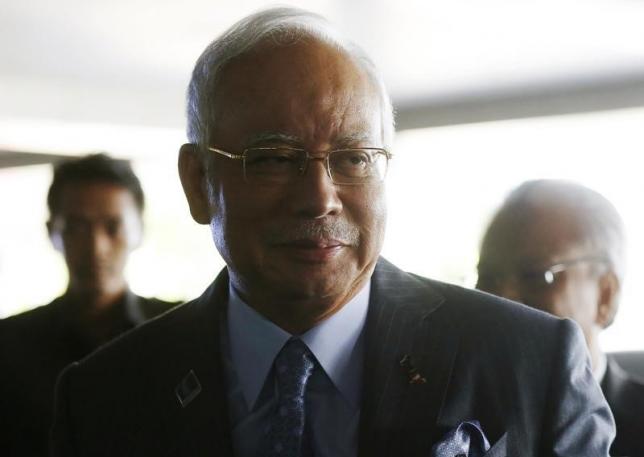
Despite increasing concerns over Chinese reclamation works on the South China Sea, political watchers say Malaysia, the rotating chair of the Association of Southeast Asian Nations(ASEAN), is likely to downplay the issue in the upcoming 26th summit meeting.
China claims most of the potentially energy-rich South China Sea through which five trillion dollar in ship-borne trade passes every year. The waters are also claimed by Philippines, Vietnam,Malaysia, Brunei and Taiwan.
Recent satellite images showed China has made rapid progress in building an airstrip suitable for military use in contested territory in the Spratly Islands and may be planning another, raising tension in the region.
China defended the construction work in the disputed sea, albeit facing strong criticism fromPhilippines, saying that it was “legal” and conducted “within its territory”.
Four out of the five claimants are members of ASEAN, and the regional bloc has been seeking to hold talks with China as a collective power and finalise a Code of Conduct. But China wants bilateral talks with each claimant.
Ten ASEAN leaders are expected to meet in Kuala Lumpur on April 27. But instead of focusing on “strategic issues” in the South China Sea, political experts say the agenda set by Malaysia will be very much trade and investment oriented.
“Malaysia, being a very trade and investment oriented country, so understandably whenMalaysia is in the position to shape the agenda, it will be mainly on economic, and trade and investment related issues, and not so much on those, whatever called strategic issues such as the South China Seas, the disputes, the territorial disputes, and so on,” said political analyst Oh Ei Sun who is a former political secretary to the Malaysian prime minister.
Malaysia is China’s third largest trading partner in Asia and the biggest among 10 ASEAN nation at 102 billion dollar in 2014. The two countries had pledge to increase trade to 160 billion dollar by 2017.
Although James Shoal, the reef located off the waters of Malaysia’s Sarawak state on theBorneo island was claimed by China, Malaysia is less vocal compared to its regional partners:Philippines and Vietnam, likely due to its strong economic ties with the Asia’s biggest country.
Philippines President Benigno Aquino planned to seek support from the Southeast Asian nations in Kuala Lumpur’s meeting, said a presidential spokesman.
“Since there is no clear basis and no clear rules, it creates tension and uncertainty. President Aquino has always placed high importance on the South China Sea since a big portion of international trade passes there,” said Herminio Coloma, the Philippines presidential spokesperson.
Philippines has said global trade will be hurt if Chinese reclamation works in the disputed waters continues.
The tense relationship between China and its Southeast Asian neighbours has sparked various violent protests, and has prompted an increase in countries who have no territorial claims in the waters to become involved.
Manila in recent days has sought more “substantive” support from Washington.
Philippine forces and the U.S. Marines resumed their biggest combined military exercise in 15 years last week, a demonstration of Washington’s commitment to its longtime ally as it rebalances to Asia.
Japan has signed defence pacts with Vietnam, Philippines and Indonesia, the self-appointed broker in the myriad territorial dispute, respectively.
Japanese government and ruling party sources said this week that Prime Minister Shinzo Abe is planning to expand Japan’s non-combat role in armed conflicts beyond “areas around Japan”.
But political watchers say the backing of United States and Japan on the Southeast Asian nations might not succeed as mutual benefits among each nation with China would be brought into consideration.
“Japan and the United States will continue to support the Southeast Asian countries in pushing back against China’s effort to consolidate control of the entire South China Sea. But, the push back won’t be completely successful, and China’s attempt to take over everything and consolidate everything also won’t be completely successful. There really ought to be some kind of compromise and I think a lot of compromises is probably possible, partly because all of the countries we’re talking about, their overall relationship with each other is much more important than these islands,” said David Holley, a lecturer in Waseda University in Tokyo.
Failing to address the issue, Malaysia could face criticism from its Southeast Asian partners and lose its credibility as a fair chair-country.
In 2013, then rotating chair country Cambodia was condemned by some ASEAN members for downplaying the South China Sea issue on worries that the discussion could hurt its strong trade relations with China.
The territorial dispute is seen as one of Asia’s hot spots, carrying risks that it could spiral out of control and result in conflict as countries aggressively stake their claims.
REUTERS / CSIS ASIA MARITIME TRANSPARENCY INITIATIVE








